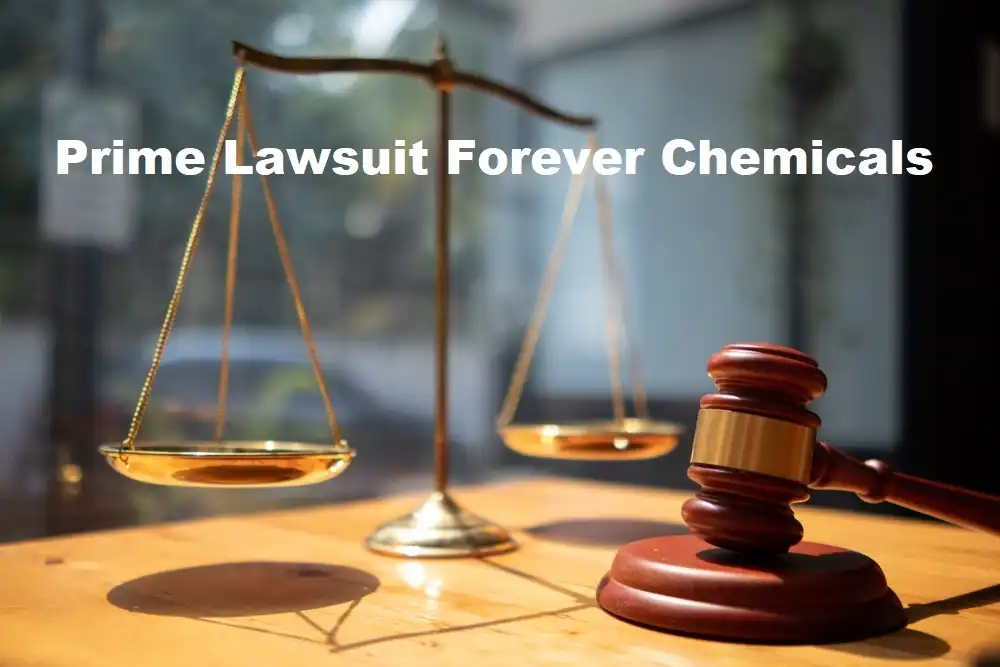The Prime Lawsuit Forever Chemicals: Unveiling the Issues

Introduction
In recent months, the popular sports drink Prime Hydration, co-founded by YouTube sensations Logan Paul and KSI, has found itself embroiled in a significant legal battle. The lawsuit centers around the presence of per- and polyfluoroalkyl substances (PFAS), also known as “forever chemicals,” in its products. These chemicals have raised considerable health concerns, leading to a class action lawsuit that has captured public attention. This article delves into the details of the lawsuit, the implications of PFAS in consumer products, and the potential impacts on the Prime Hydration brand and its consumers.
Background of Prime Hydration
Prime Hydration was launched in 2022 by Logan Paul and KSI, aiming to fill a gap in the market for a sports drink that combines great taste with functional benefits. The brand quickly gained traction, thanks to the massive following of its founders, and achieved impressive sales figures, including $250 million in retail sales in its first year. The product line includes various flavors of sports drinks, energy drinks, and Hydration+ Sticks, a powdered version of the original drink.
The Discovery of PFAS in Prime Hydration
The controversy began when independent third-party testing revealed the presence of PFAS in Prime Hydration’s grape flavor. PFAS are synthetic chemicals widely used in various industries for their water- and grease-resistant properties. However, they are notoriously difficult to break down, leading to their accumulation in the environment and human body over time, hence the nickname “forever chemicals”.
The specific PFAS detected in Prime Hydration include:
- Perfluoro-1-butanesulfonic acid (PFBS)
- Perfluoro-n-decanoic acids (PFDA)
- Perfluoro-n-dodecanoic acid (PFDoA)
- Perfluoro-n-heptanoic acid (PFHpA)
- Perfluoro-noctanoic acid (PFOA)
- Perfluoro-n-tetradecanoic acid (PFTeDA)
- Perfluoro-n-undecanoic acid (PFUdA)
- Perfluorooctanesulfonic acid (PFOS)
These findings were alarming, considering the well-documented adverse health effects associated with PFAS exposure, such as reproductive harm, developmental delays in children, increased cancer risk, and interference with the body’s hormonal functions.
Health Implications of PFAS
PFAS exposure has been linked to a range of health issues. The Environmental Protection Agency (EPA) and other health organizations have highlighted the potential dangers of these chemicals, including:
Reproductive Harm: PFAS can affect fertility and pregnancy outcomes.
Developmental Effects: Children exposed to PFAS may experience developmental delays.
Increased Cancer Risk: PFAS exposure is associated with an increased risk of certain cancers.
Immune System Impact: PFAS can weaken the immune system, reducing the body’s ability to fight infections and respond to vaccines.
Hormonal Interference: These chemicals can disrupt the body’s natural hormonal balance, leading to various health problems.
Metabolic Effects: PFAS exposure is linked to higher cholesterol levels and an increased risk of obesity.
Given these significant health risks, the presence of PFAS in a widely consumed sports drink like Prime Hydration raises serious concerns.
The Lawsuit
The lawsuit against Prime Hydration was initiated by lead plaintiff Elizabeth Castillo, a resident of California, who purchased the drink on multiple occasions. Castillo claims that she would not have bought the product had she known it contained PFAS. The lawsuit alleges that Prime Hydration engaged in deceptive marketing practices by presenting its drinks as healthy and beneficial while failing to disclose the presence of harmful chemicals.
The legal action seeks to represent two classes of consumers:
Nationwide Class: All individuals who purchased Prime Hydration Grape Sports Drink within the United States for personal use.
California Class: All individuals who purchased Prime Hydration Grape Sports Drink within the State of California for personal use.
The lawsuit aims to secure damages, injunctive relief, and other remedies for consumers who were misled by the product’s marketing and labeling.
Prime Hydration’s Response
As of now, neither Logan Paul nor KSI have publicly addressed the lawsuit. The company’s future actions will be closely watched, as the outcome of this legal battle could have far-reaching implications for the brand and its reputation. The presence of PFAS in Prime Hydration products poses a significant challenge, not only legally but also in terms of consumer trust and brand integrity.
Broader Implications for the Beverage Industry
The Prime Hydration lawsuit is not an isolated incident. The discovery of PFAS in consumer products has become a growing concern, leading to increased scrutiny and legal action across various industries. PFAS have been found in a wide range of products, from food packaging to textiles, and their persistent nature makes them particularly problematic.
The beverage industry, in particular, faces heightened scrutiny as consumers become more aware of the potential health risks associated with PFAS. Brands must ensure that their products are free from these harmful chemicals to maintain consumer trust and comply with regulatory standards.
Regulatory Landscape
Regulatory bodies around the world are taking steps to address the issue of PFAS in consumer products. The EPA, for instance, has established health advisories for certain PFAS in drinking water and is working on setting enforceable standards. Additionally, several states in the U.S. have enacted or proposed legislation to limit PFAS in various products.
These regulatory efforts aim to reduce PFAS exposure and protect public health. Companies in the beverage industry, including Prime Hydration, will need to stay abreast of these regulations and ensure compliance to avoid legal repercussions and safeguard their customers’ well-being.
Consumer Awareness and Advocacy
Consumer awareness of PFAS and their associated risks is growing, thanks to increased media coverage and advocacy efforts. Organizations like the Environmental Working Group (EWG) have been instrumental in raising awareness and pushing for stronger regulations to limit PFAS in consumer products.
As consumers become more informed, they are likely to demand greater transparency from brands regarding the ingredients and safety of their products. This shift in consumer expectations will drive companies to prioritize product safety and invest in thorough testing to ensure their offerings are free from harmful chemicals.
Moving Forward: What Brands Can Do
To navigate the challenges posed by the presence of PFAS in consumer products, brands like Prime Hydration can take several proactive steps:
Enhanced Testing and Quality Control: Implement rigorous testing protocols to detect PFAS and other harmful substances in products before they reach the market.
Transparency: Clearly communicate the ingredients and safety measures taken to ensure product safety. Transparency can help rebuild consumer trust.
Regulatory Compliance: Stay informed about evolving regulations regarding PFAS and ensure compliance with all relevant standards.
Consumer Education: Educate consumers about the steps being taken to ensure product safety and the importance of avoiding PFAS exposure.
Sustainable Practices: Consider adopting more sustainable practices and sourcing alternatives to PFAS to minimize environmental impact.
Conclusion
The lawsuit against Prime Hydration for the presence of “forever chemicals” in its products highlights a critical issue in the beverage industry. As awareness of PFAS and their health risks grows, brands must prioritize product safety, transparency, and compliance with regulations to maintain consumer trust. The outcome of this legal battle will be closely watched, not only for its impact on Prime Hydration but also for its broader implications for the industry. Moving forward, companies must take proactive measures to ensure their products are free from harmful chemicals and meet the evolving expectations of informed consumers.






